
There are so many different diets out there, so is the Whole30 diet worth trying? While you don’t want to follow a “quick fix” diet since they tend to cause more harm than good, as they are unsustainable, and many people gain the weight they lost right back, there are still ways of eating that promote health and wellness. The key is finding something that you would be willing to stick to long-term – that means it doesn’t have any crazy or unrealistic restrictions!
With that said, there are certain circumstances under which following the Whole30 diet for a deliberately short time can be beneficial. For example, if you’re experiencing digestive issues routinely after eating with no known cause, trying an elimination diet and recording your symptoms and reactions as you reintroduce foods can elucidate your potential food sensitivities.
After the potential culprits are identified, you can resume a more liberal, diverse diet by excluding the trigger foods. Similarly, some guys may find a short-term, squeaky-clean diet can help them reset their brain and appetite to be keener with healthier eating habits after an extended vacation marked by indulgent eating or weeks of enjoying rich foods.
The Whole30 diet is designed for exactly these types of scenarios. Though highly restrictive and therefore not an easy diet to implement and stick with, the results can be rather transformative for those who can diligently adhere to the diet program for its entire 30-day duration. Fortunately, 30 days come and go fairly quickly. If you are experiencing symptoms of food sensitivities, the Whole30 diet just might be the dietary reset you need to start feeling better and making progress toward your health goals.
However, it can also be a controversial eating plan, and there are plenty of registered dietitians and nutritionists who take issue with some of the “rules” and exclusions set forth by the diet, so it warrants careful consideration of both sides before you jump in.
Are you curious to see if you’re up for the challenge and in need of rebooting your dietary habits and digestive health, or if you fall more in the camp that the Whole30 diet is a fad diet with little merit? Keep reading to learn all the need-to-know information about the Whole30 diet.
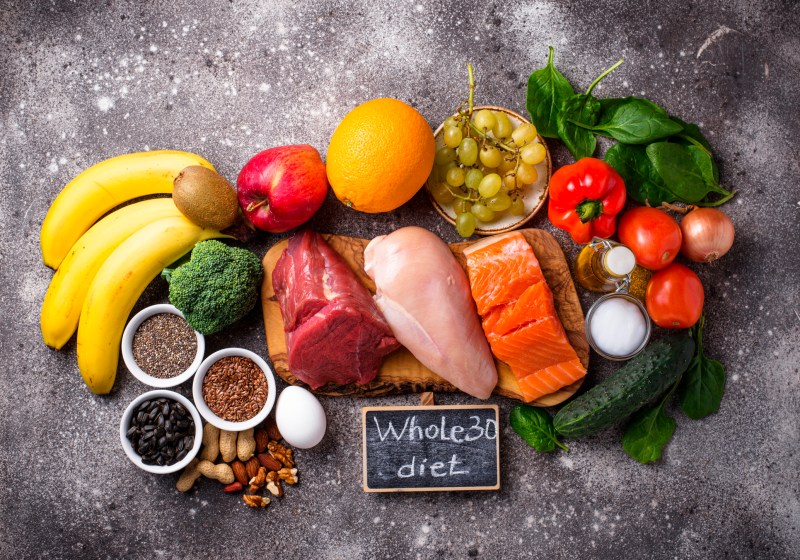
What is the Whole30 diet?
Created in 2009 by a married couple of sports nutritionists, Melissa Urban and Dallas Hartwig, the Whole30 diet is a 30-day dietary reset eating program designed to help people identify food sensitivities and triggers of inflammation, cravings, low energy, hormonal imbalances, and digestive dysfunction. Adherents of the Whole30 diet are asked to fully buy in for the entire 30 days, abiding by all the explicitly stated rules without slip-ups. Should a rule be broken, the dieter must restart their count from day one.
The Whole30 diet focuses on consuming whole, unprocessed foods, which is certainly a sound eating principle. However, because the list of rules is extensive, the actual diet is highly restrictive. The primary purpose of the diet is to remove trigger foods, and this includes many major food groups like dairy and grains. After the 30 days, the foods you miss eating can slowly be re-introduced one at a time while you’re expected to note any adverse reactions. If the food does trigger cravings, inflammation, bloating, low energy, sleep disturbances, etc., then you’re supposed to permanently eliminate it from your diet.
Unlike most other popular diets, the Whole30 diet actually prohibits weighing yourself except for the first and thirtieth days of the program. Dieters are also asked not to track calories but to instead focus on eating to satiety.
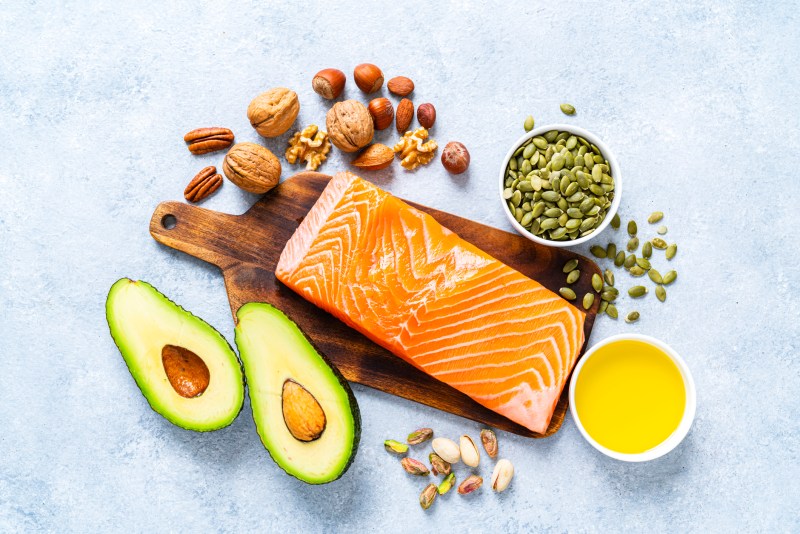
What foods can you eat on the Whole30 diet?
The Whole30 diet allows certain whole, natural, and unprocessed foods. While the diet does have a very specific list of exclusions, there are no stipulations about how many servings you are allotted or how often you can consume them among the foods you’re permitted to eat. The individual person can make their own meal choices as long as they are eating only Whole30-approved foods. The following foods are allowed on the Whole30 diet:
- Meat: All real meats are permitted, but processed and cured meats are not
- Poultry: All poultry is allowed as long as it does not contain additives
- Nuts and seeds: All except peanuts and peanut products, as peanuts are legumes
- Fruit: Fresh and canned fruit is allowed, but fruit products with added sugars are not
- Healthy fats: Examples include avocados, olive oil, and ghee
- Seafood
- Fish
- Eggs
- Vegetables
- Spices
- Herbs

What foods do you have to avoid on the Whole30 diet?
The list of foods you need to avoid on the Whole30 diet is rather extensive. Here are the highlights.
- All grains, even whole grains
- All dairy, including cheese, yogurt, milk, ice cream, sour cream, and butter, among others
- All soy, including soy lecithin, tofu, soy milk, and soybean oil
- All legumes, which include peanut butter, nuts, beans, peas, lentils, chickpeas, hummus, and peanut oil
- All sugar, even natural sugars like honey, maple syrup, and agave
- All artificial sweeteners like Splenda, xylitol, or stevia, even in gum
- All alcohol, even if cooked off
- All processed food additives, such as carrageenan, sulfites, and MSG
- All sweet treats, even if you bake them up, so prepare alternative versions made only with ingredients approved on the Whole30 diet

What are the benefits of the Whole30 diet?
There are no scientific studies to date examining the benefits of the Whole30 diet, so all the cited benefits are merely anecdotal. Having said that; the Whole30 diet creators say that people who successfully complete the diet program experience impressive and significant changes in their health, including weight loss, fat loss, better sleep, clearer skin, more energy, lower blood pressure, less food cravings, and less bloating and gas.
Because the Whole30 diet does have quite specific rules, it also forces people to be more mindful and cognizant of the foods they put in their bodies, which can be helpful moving forward beyond the 30 days. Lastly, many people enjoy the freedom from the scale and being able to focus on how they feel rather than how much they weigh.
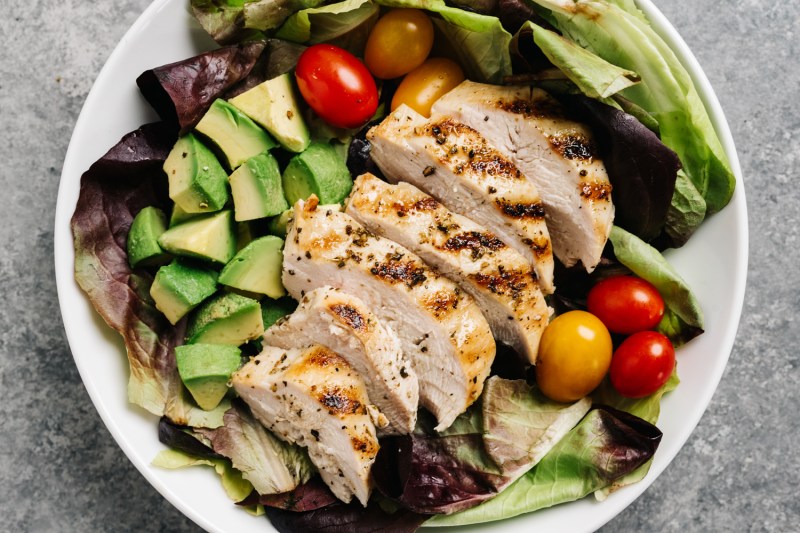
Why is the Whole30 diet controversial?
Many nutritionists and registered dieticians have issues with aspects of the Whole30 diet or even the diet in its entirety. The primary complaint is that, to date, there have been no research studies conducted on the diet, so there is no evidence demonstrating its efficacy, health benefits, and safety, meaning it’s all based on anecdotal evidence and conjecture. Additionally, the Whole30 diet removes certain foods and food groups that many experts consider to be nutritious, including whole grains and legumes.
Lastly, from a behavioral perspective, some people take issue with the cult-like, militant vibe induced by the rules, the need to restart if you’re not perfect, and the extreme strictness of the diet. All of this can make it too difficult and impractical for many people who would otherwise be served by following a less severe version but end up abandoning ship due to the expectations.
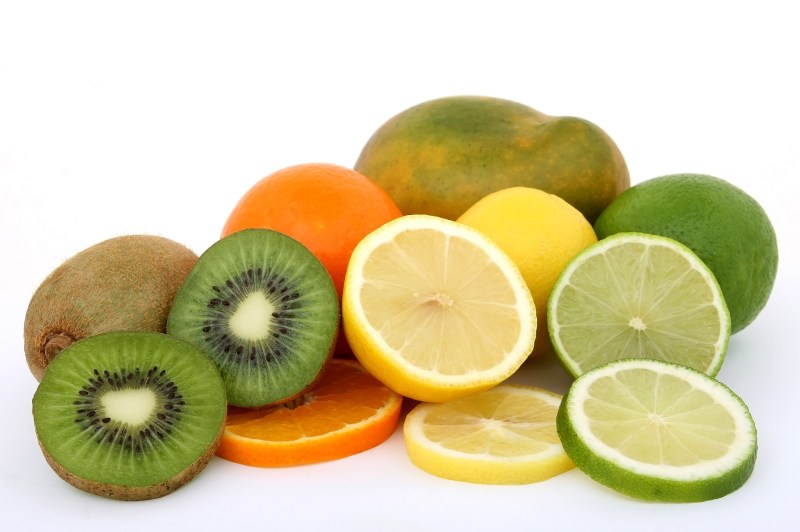
Can you do the Whole30 diet beyond 30 days?
While it’s technically possible to follow the core principles of the Whole30 diet for longer than 30 days, it’s important to understand the potential drawbacks and approach it cautiously. The Whole30 is intended as a 30-day reset, not a long-term dietary solution. Its restrictive nature can be challenging to maintain indefinitely, potentially leading to frustration and unsustainable habits.
Eliminating entire food groups (legumes, dairy) for an extended period can make it difficult to meet all your daily nutrient needs, especially calcium, protein, and certain vitamins. However, an alternative approach is the Whole30 Plus program, which extends the elimination phase beyond 30 days in 15-day increments (up to 90 days).
Remember, the most sustainable approach to healthy eating involves creating a balanced and flexible plan that you can maintain long term, while addressing your individual needs and preferences. Consider consulting a registered dietitian or healthcare professional for personalized guidance.
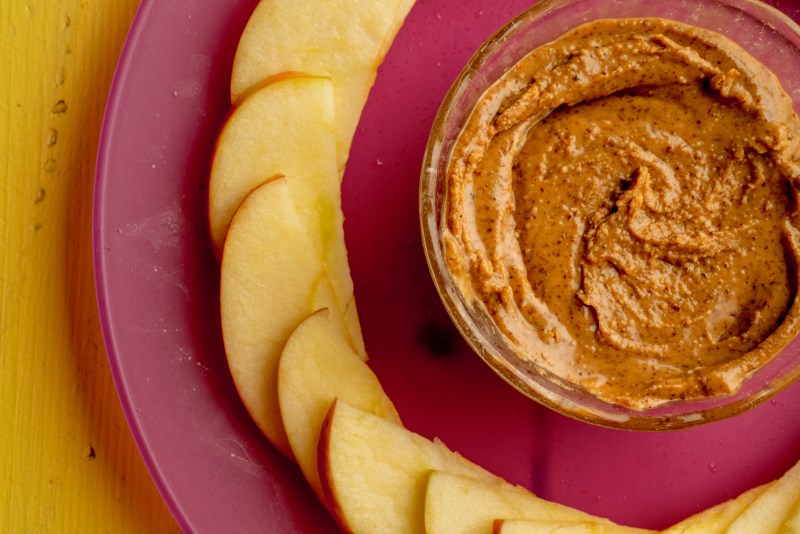
Sample Whole30 diet meal plan
Curious about what a day of eating might look like on the Whole30 diet? Below, we share a sample meal plan.
- Breakfast recipe: Two scrambled eggs with green and red bell peppers, onions, and mushrooms, and a side of hash browns cooked in olive oil
- Snack: Apple slices with almond butter
- Lunch recipe: Lettuce wrap with chicken salad made with chicken breast, homemade mayo, celery, and carrots
- Snack: Mixed nuts (no peanuts) and an orange
- Dinner recipe: Pork chop with a baked potato, salad, and Brussels sprouts
- Snack: Honeydew melon
Editors' Recommendations
- Black tea vs. green tea: Which offers more benefits?
- The important health benefits of magnesium you need to know about
- How to grill corn on the cob: The tips, tricks, and recipes you need
- You should know how to make these incredible sauces
- Cruciferous vegetables are the secret to a healthy diet — here are 9 you should be eating





